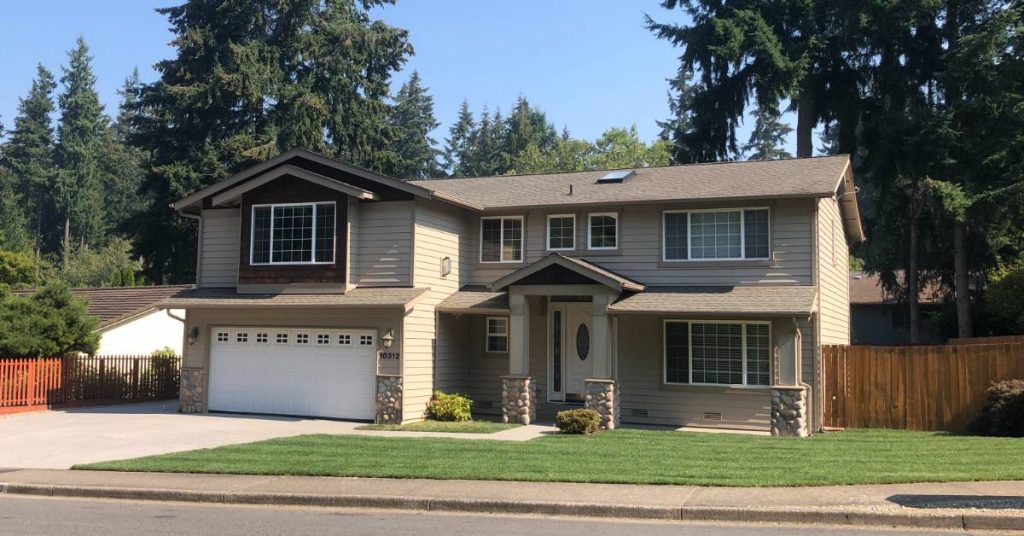FHA is not a mortgage of last resort.
If you ask 10 homebuyers what type of loan they used, one or two will say “FHA”, according to data from HUD, the overseer of the program.
It’s not surprising. FHA is the most lenient of any major loan type. It allows credit scores down to 580, the use of down payment assistance, and has provisions for lower-income buyers.
Surprisingly, many renters don’t know how powerful this program is. Many people could be approved but have never applied.
Ready to become a homeowner in 2024? Here’s how with FHA.
Check your eligibility to buy with FHA.
@this_is_mortgage Finally break into homeownership with these strategies 🏠💪#firsttimehomebuyer #mortgagetips #thisismortgage #2024realestate #firsttimehomebuyertips #fhaloans #homebuyertips #greenscreen #ConSantanderConecto
♬ Aesthetic – Tollan Kim
Homebuyer concern: Lack of upfront funds. Hack: Down payment assistance, gift funds, seller credits
FHA requires a 3.5% down payment but it doesn’t have to be your own money.
The program lets you use down payment assistance (DPA) programs such as NFM Flex, Empowered DPA, DPA Advantage, and more.
These programs cover your entire 3.5% down payment. They are offered directly by lenders and mortgage brokers and have few if any geographic or income restrictions.
However, you need to pay $5,000 to $10,000 in closing costs. Luckily, you can request thousands of dollars from the seller toward closing costs. These are known as seller credits or concessions.
In addition, FHA allows gifts from relatives or even long-standing friends to help cover closing costs.
See if you qualify for a down payment assistance mortgage.
Homebuyer concern: Credit. Hack: Higher income and extra cash after closing
Technically, FHA allows credit scores down to 500. But you need 10% down. It’s best to shoot for 580 so you can put 3.5% down.
If your credit is low, you are more likely to receive an approval by:
- Buying a house you can easily afford for your income level
- Keeping your future house payment the same as what you’re paying in rent (zero payment shock)
- Perfect rent payment history for the last 12 months
- Money in the bank after paying the down payment and closing costs (called “reserves”)
- Strong employment history
These and other factors are called “compensating factors.” They make up for some of the risk of having a lower credit score.
Homebuyer concern: Self-employment. Hack: Stay in same line of work
FHA loans allow you to qualify after just one year of self-employment if you had a similar W2 role for two years prior to going self-employed.
You just need to file taxes for a full year of business and supply your employer’s information from the previous role.
Those who start a self-employed business that doesn’t relate to a previous role can qualify for FHA after filing two years of tax returns showing adequate income.
Homebuyer concern: Can’t qualify for much. Hack: Buy a duplex
One recent client of mine qualified for a $300,000 duplex when her maximum single-family price was $200,000. Why? Rental income.
Say you buy a duplex. The unit you won’t be living in brings in $1,500 per month. You can add 75% of that rent to your qualifying income, or an extra $1,125. This can help you qualify for more. Rental income has an added benefit: lowering your homeownership costs (as shown in this calculator).
You can also use Accessory Dwelling Unit rental income to qualify.
FHA also allows 3- and 4-unit properties, but they are harder to buy due to a self-sufficiency test requirement. So it’s best to stick with duplexes.
Check your FHA eligibility. Start here.
Homebuyer concern: Property is a fixer. Hack: FHA 203k renovation loan
FHA offers a renovation option for fixer-uppers called the 203k loan. You can pay for the house and repair costs with one affordable FHA loan.
This means you can make an offer on a house no one else wants for pennies on the dollar, then fix it up and have instant equity when you move in.
FHA requirements 2024
The above are the major issues stopping most homebuyers from buying a home. Here are additional tricks and secrets regarding other FHA guidelines.
Income/employment
Secret: You don’t have to be in the same job for 2 years. W2 employees can buy a home if they have two years of employment history or equivalent education in the same industry. To qualify, you use your full pre-tax income.
Debt-to-income (DTI) ratio
Secret: You can spend up to 46.9% of your gross (pre-tax) income on the house payment including principal, interest, taxes, insurance, and HOA dues.
You can use up to 56.9% of your income on the total housing payment plus all debt payments such as auto loans and credit card minimum payments.
To see how DTI translates to home prices, check out this home affordability hub.
Mortgage insurance
Secret: FHA mortgage insurance is cheaper than conventional PMI for homebuyers with scores under 740.
FHA mortgage insurance is typically $46 per month per $100,000 borrowed versus up to $120 per month per $100k in loan amount for conventional loans.
However, FHA requires an upfront one-time mortgage insurance payment of 1.75% of the loan amount. This is financed into the loan. Conventional has no such fee.
First-time buyer
Secret: You do not have to be a first-time buyer to use FHA. However, more than 80% of FHA purchase loans go to new buyers, so it’s certainly a popular option among this group.
First-time buyer? Start your FHA pre-approval.
Loan limits
Secret: You can buy a home up to $515,000 with 3.5% down using FHA anywhere in the country assuming you qualify. This is based on the 2024 maximum FHA loan of $498,257.
FHA allows larger loan limits in high-cost areas and for multifamily homes: up to $2.2 million.
U.S. residency
Secret: Permanent residents (Green Card), some non-permanent residents and DACA recipients enjoy the same approval terms as U.S. citizens.
Co-signers
Secret: You can use a non-occupant co-borrower to help you get approved for a 1-unit home. This is when someone who will not be living in the home co-signs on the loan with you. You can use their income and credit to help you qualify.
Home types
Secret: Homes up to 4 units are eligible. Single-family residences, 2-4 unit homes, properties with an ADU, condos, townhomes, and manufactured homes are eligible.
Use of the home
Secret: The home must be where you plan to live but you are allowed to rent out a room – or the entire house except your room – to help you cover housing expenses. You must qualify for the home without counting this rental income if it’s a 1-unit home.
Property and appraisal
Secret: The property must be in decent shape, but not perfect. Some buyers think the home can have no defects for FHA, but this program is not too much stricter about property condition than conventional loans.
FHA loan pros and cons
Pros:
- Lower rates than conventional loans
- Credit scores down to 580
- Can refinance with no appraisal or income verification
- Lenient income requirements
- Allows seller credits, gifts, and down payment assistance
- No income or geographic limits
Cons:
- You pay mortgage insurance until you refinance to another loan type
- Requires upfront mortgage insurance; conventional does not
- Harder to get an accepted offer
FHA vs conventional
| FHA | Conventional | |
| Down payment | 3.5% | 3% |
| Can use DPA, gift funds, seller credits | Yes | Yes |
| Credit score | 580 | 620 |
| Rates | Much lower for lower-credit buyers | High for those with low credit |
| Debt-to-income ratio | 56.9% | 45-50% |
| Mortgage insurance | $46/mo per $100k in loan amount | $30-$120/mo per $100k in loan amount depending on credit |
| Cancelable mortgage insurance without refi? | No | Yes |
| Standard loan limit | $498,257 | $766,550 |
| High-cost area loan limit | $1,149,825 | $1,149,825 |
| Occupancy | Must live in home | Primary residence, 2nd home, investment |
FHA helps you overcome homebuying obstacles
FHA was created nearly 90 years ago to help homebuyers who didn’t fit into the conventional box.
Whether your barrier is lack of assets, lower credit or income, or something else, chances are FHA can help.




